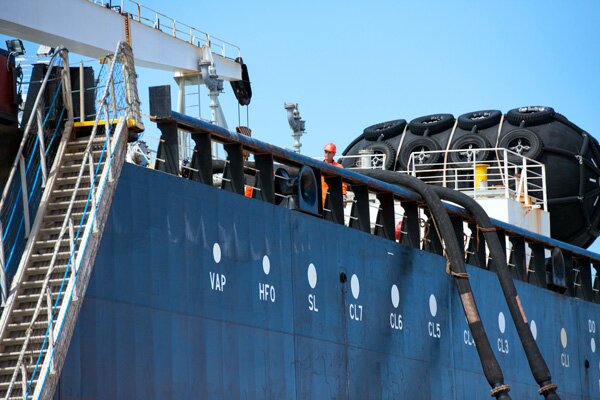Our new NorthStandard site is now live. There will be no new content or updates added to this site. For the latest information, please visit our new site north-standard.com.
Focus on Turkiye: Marine pollution fines as of 1 January 2022
Article 20 of the Turkish Environmental Code 1983, law no.2871, provides that fines may be imposed by the relevant authorities on vessels causing pollution in Turkish waters, through the discharge of petroleum products, dirty...

Article 20 of the Turkish Environmental Code 1983, law no.2871, provides that fines may be imposed by the relevant authorities on vessels causing pollution in Turkish waters, through the discharge of petroleum products, dirty ballast and garbage and sewage into the sea. The fines are calculated in reference to the vessel’s gross tonnage (GT) and the type of pollutant (i.e. petrol, sewage, garbage, dirty ballast etc.)
The level of fines relating to any pollution which occurs in Turkish waters under Article 20 of the Turkish Environmental Code 1983, law no.2871 are updated on annual basis by the Turkish authorities. As of 1 January 2022, the level of fines have been increased by 36.20% in comparison with the previous rates (last year’s rates can be found here). Below are the revised fines for the various categories and different vessel sizes.
i) The discharge of petroleum products discharged by tankers:
- Vessels up to and including 1,000 GT – TRY 901.56 per GT
- Vessels between 1,000 GT and 5,000 GT - TRY225.40 per GT in addition to the above amount
- Vessels over 5,000 GT – TRY 22.53 per GT in addition to the above amount.
ii) Dirty ballast discharged by tankers:
- Vessels up to and including 1,000 GT – TRY 164.26 per GT
- Vessels between 1,000 GT and 5,000 GT - TRY 32.77 per GT in addition to the above amount
- Vessels over 5,000 GT – TRY 5.20 per GT in addition to the above amount.
iii) Petroleum products and dirty ballast discharged by vessels or other naval vessels:
- Vessels up to and including 1,000 GT – TRY 450.78 per GT
- Vessels between 1,000 GT and 5,000 GT - TRY 90.16 per GT in addition to the above amount
- Vessels over 5,000 GT – TRY 22.53 per GT in addition to the above amount.
iv) Garbage and sewage discharged by vessels or any other naval vessel:
- Vessels up to and including 1,000 GT – TRY 225.40 per GT
- Vessels between 1,000 GT and 5,000 GT - TRY 45.08 per GT in addition to the above amount
- Vessels over 5,000 GT – TRY 22.53 per GT in addition to the above amount.
Factors affecting the level of the final fine
Turkish authorities may double the value of the fine if there is a pollution re-occurrence for the vessel within 3 years. If there has been a further re-occurrence, the fines could be increased by 200%. Furthermore, pollution fines in Turkiye could be tripled if the liable party is a business/organisation. This includes ship owning and chartering businesses.
On the other hand, if members manage to clean up the pollution using their own means, only 1/3 of the total amount of the fine would be payable.
Payment and provision of security
Fines issued under Article 20 of the Turkish Environmental Code 1983, law no. 2871, must be paid in full or security must be put up immediately for the full amount to prevent the arrest or delay of the vessel.
If the fine is paid within 30 days, members may benefit from a ¼ discount on the total amount of the fine. Alternatively, the fine can be appealed if an objection is filed with the Turkish Administrative Courts within 30 days from the date the fine was notified to the members.
The relevant authorities do not lose the right to demand payment of the fine upon filing for the objection. Therefore, the recommendation of lawyers Messrs, Ersoy Bilgehan, has been to pay the fine within 30 days to benefit from the above discount and then file for an objection before the Turkish Administrative Courts.
Please note that club LOUs may not always be accepted. IG clubs have experienced demands for open-ended and anticipatory LOUs for pollution incidents in Turkiye and the process of negotiating and arranging the security may cause delays to the vessel.
Criminal Proceedings
The relevant authority in Turkiye is obliged to notify pollution incidents to the public prosecutor, who may investigate the incident and commence criminal proceedings against the Master/Vessel. This would be in addition to, and, separate from administrative fines discussed above.
Recommendations
We would recommend members to make sure all overboard discharge valves remain secured, sealed and closed whilst the ship is within Turkish waters. Members are also recommended to avoid any ballasting or de ballasting operations, as well as washing the deck, testing hatch covers and discharging sewage water or disposing cargo residues or garbage while anchored in or transiting Turkish waters. Members are recommended to notify the club of any pollution incident as soon as possible, to ensure that prompt response and measures are put in place to protect the members’ interests. Please contact your usual P&I contact if you have any questions or require further information.
Further information can be found in the Client Alert published by Ersoy Bilgenhan here.
Category: Pollution


